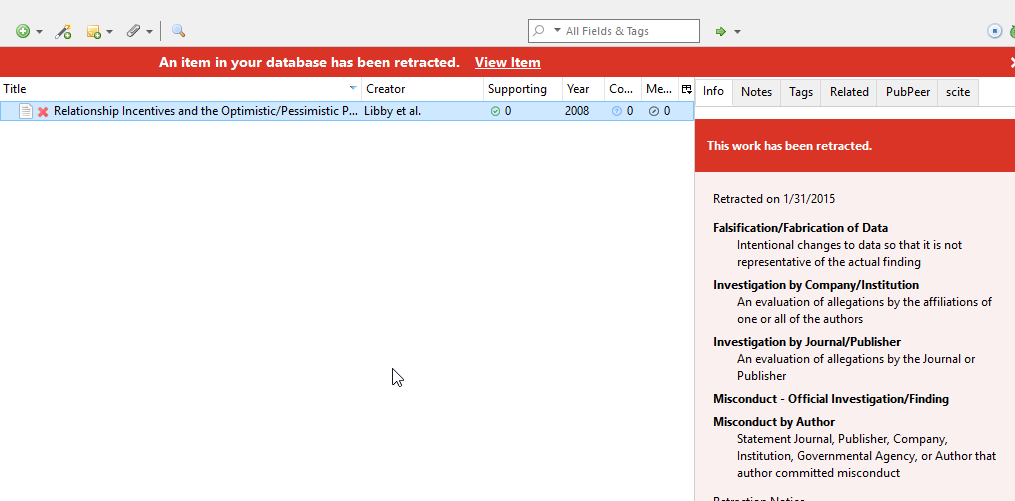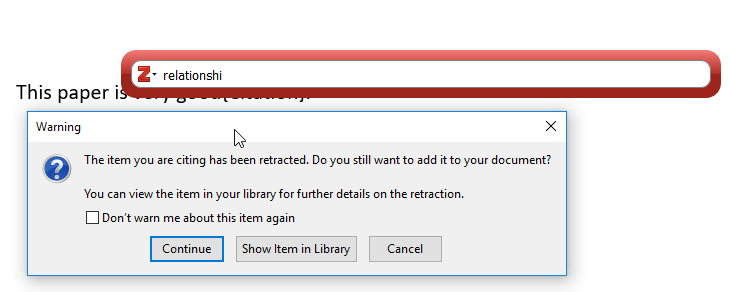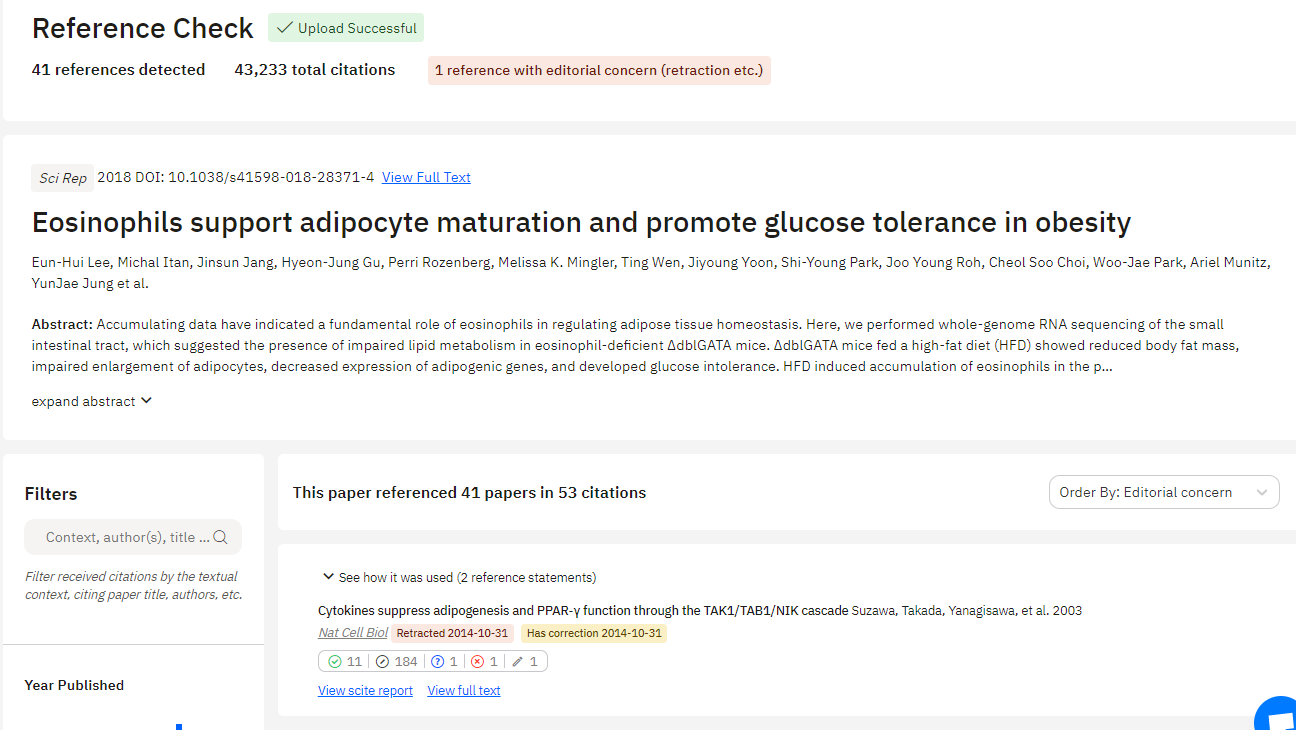
By Aaron Tay, Lead, Data Services
Various bibliometric studies have shown that in the past fairly large number of authors have been citing papers that have been long retracted and that the authors are presumably unaware of the retraction status (through analyzing the context or sentiment of the citations).
For example, this paper suggests “retraction of articles has no impact on citations in the long term, since the retracted articles continue to be cited, thus circumventing their retraction.”
While it is acceptable to cite retracted works, as long as you are aware of the retracted status and mention it , how do you ensure that that you don’t accidentally cite something that was just retracted?
With publishers like Karger and commonly used manuscript systems like ScholarOne starting to embed checks in these areas, it might be worth while doing the same checks prior to submitting to journals.
Here are two different methods that can help flag such retracted papers:
1. Use a Reference Manager with built-in retraction checks – e.g. Zotero
Reference managers are very useful to track literature you have collected, but did you know they are starting to help you with checks on works that may have been retracted?
Take the free open source, Zotero, they have partnered with Retraction Watch and use their database to flag retracted papers as you import papers into your citation library.

Zotero also provides a second layer of warning, as you cite papers using Zotero’s Word Processor Plugins it will warn you if a paper you have cited is retracted.

2. Using scite reference tracker
If you do not use reference managers or if your reference manager does not provide such checks, use pre-submission manuscript health checkers to screen for such references.
One free checker (limited to 1 check per month) that is the scite Reference Check .
When you read your manuscript through the system, it will provide you with a report on the “health” of the manuscript. You can see a sample report here.

As a bonus, scite not only flags retracted works you have cited in your manuscript but you also gain the benefit of scite’s “smart citations” being displayed along-side each citation you made.
What are smart citations?
While traditional citations just record the presence of a citation, scite attempts to classify the type of citations using machine learning. The three types of citations it classifies citations into are
- “mentioning” citations
- “supporting” citations
- “contrasting” citations
This might help provide some additional insight into the papers you are citing.
While such tools will allow you to reconsider cites made prior to publication, what happens if a paper you have written is published and much later it turns out what you cited happens to be retracted?
Retraction Watch provides some advice on what you should do if a paper you cited is later retracted.
For further clarifications and support do contact SMU Libraries – library [at] smu.edu.sg
Further reading
- Retracted item notifications with Retraction Watch integration
- Introducing scite visualisations: A new way to look at a field of research
- Scite: a smart citation index that displays the context of citations and classifies their intent using deep learning
- [Video] Scite – How to make sure your references are reliable